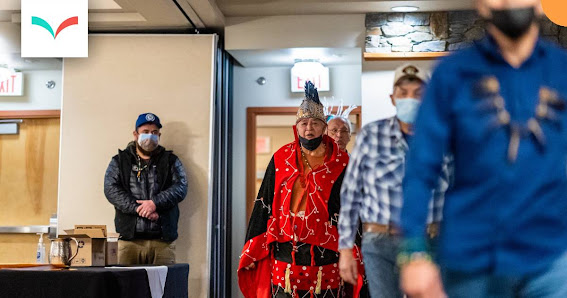The conflict over the Coastal GasLink project is about more than the fate of a single pipeline or the territory of one Indigenous nation. The precedent set here will have far-reaching consequences, and Indigenous nations and leaders from across Turtle Island are paying close attention.
The hereditary chiefs of the Wet’suwet’en Nation hosted a Peace and Unity Summit in the town of Smithers on Jan. 15. Wet’suwet’en leaders and representatives of other Indigenous nations gathered to offer solidarity and support in the fight against the Coastal GasLink pipeline.
The Wet’suwet’en argue that their Indigenous and human rights, and rights to their territories, are threatened by the multibillion-dollar project, which is backed by the provincial and federal governments.
Their fight to stop the LNG pipeline has been gruelling, stretching over several years and multiple police raids of resistance camps on unceded Wet’suwet’en lands. Militarised police patrols and harassment of those they encounter have become a regular occurrence on the Wet’suwet’en Yintah (territory). Officers have violently arrested and jailed numerous land defenders under the authority of a colonial court’s injunction.
The latest raid, in November, saw over a dozen land defenders and two journalists arrested at gunpoint. The RCMP appeared to be gearing up for another raid this month, until the land defenders made the strategic choice to withdraw from Coyote Camp. The camp had blocked access to a Coastal GasLink drill site they will use to bore under the sacred Wedzin Kwa (Morice) river.
At the time Sleydo’, part of the Gidimt’en (Bear) clan of the Wet’suwet’en Nation, stated that land defenders intended to block drilling under the river by any means necessary, but did not want to provoke another raid that would lead to more arrests and more land defenders being barred from their own territory by bail conditions. (more...)
‘I can never stop being Wet’suwet’en:’ Summit strengthens alliances against CGL pipeline

No comments:
Post a Comment